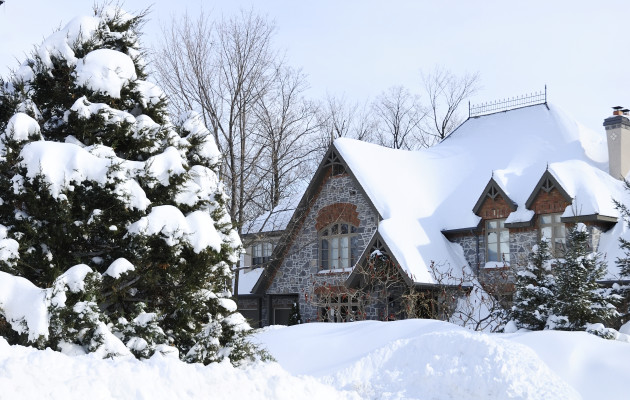10 Ways to Prepare for Winter Weather
10 Ways to Prepare for Winter Weather
Winter storms and nor’easters are becoming increasingly common – and increasingly damaging. Heavy snows, freezing temperatures, and strong winds all contribute to the threat of property damage to homes and businesses. At Adjusters International/Basloe, Levin & Cuccaro (AI/BLC), we are committed to helping home and business owners through whatever winter might bring.
Winter Weather Worries
There are many types of damage associated with winter weather that home and business owners should be wary of. Many property damage claims in the winter months are attributed to issues from freezing or bursting pipes, which can cause water damage, flooding, and/or mold issues. Frequent and heavy snows can also lead to roof collapse. It can also weigh down trees that can fall and damage structures. In addition, ice buildup can weigh down and cause damage to gutters, and, when the ice melts, the water can damage siding and seep into your home.
But the cold isn’t the only threat to your property. Outdated and worn furnaces can overload and result in a furnace fire. Similarly, space and area heaters are a big cause of residential fires if they are used improperly.
All these issues can be compounded or worse, ignored, if you have a seasonal home left empty for the winter, or you leave your home or business for holiday vacations., without having it checked regularly. If properties aren’t winterized, the damage can be a rude awakening.
How to Prepare for Winter Weather
Luckily, there are ways to prepare for all these situations and prevent as much damage from winter storms as possible:
- Clean Gutters and Check Drainage
Remove debris from your gutters to help water from ice and snowmelt properly drain away from the home, preventing foundation deterioration and other damage.
In addition, fill any low spots in the soil around the foundation and add downspout extenders if necessary to ensure water can’t pool and seep into the house.
- Insulate Pipes
To prevent bursting, wrap basement and crawlspace pipes with insulation. For kitchen and bathroom pipes, open cabinet doors to keep warm air circulating. When it gets below freezing, you can also allow your faucets to drip to keep water running.
It’s also important to blow out your sprinklers and turn off all outside faucets, and let water drain out of the lines before the weather turns too cold.
- Check Your Doors and Windows
If you notice air leaks or can see light coming through cracks in your doors and windows, re-caulk the seals on the outside with exterior silicone caulk. If your doors have gaps at the bottom, add rubber or metal door sweeps between the door and the floor.
- Check Appliances
Have your heating and cooling system inspected by an HVAC contractor and replace your furnace filters to reduce the possibility of overheating.
- Use Heating Appliances Safely
To prevent fires, use wall outlets instead of extension cords and keep flammable materials away from appliances. Additionally, try limit one plug per outlet to reduce the risk of overloading it.
- Inspect Your Roof
Get your roof inspected before the first winter storm hits and fix any weaknesses or leaks. Make sure to keep clear records of your roof inspection history so you can show the insurance company should you ever need to file a claim. In case of extraordinary snowfalls have the snow removed from the roof by professionals.
- Cut Back Trees
Cut back tree limbs close to structures to prevent them from getting weighed down with heavy snow and falling, damaging your property.
- Get Your Chimney Inspected
To prevent fires, have your chimney inspected and remove any buildup—even if you only use your fireplace for aesthetic purposes.
- Test Your Smoke and Carbon Monoxide Detectors
House fires are common during the winter—and since windows and doors tend to be closed, carbon monoxide becomes a greater concern as well. Replace the batteries in your smoke and carbon monoxide detectors and ensure they’re functioning ahead of the winter season.
- Check Your Coverage
Prepare for whatever winter may bring by checking that your insurance coverage is up to date. This way, if you do have to file a property damage claim, you will be fully covered and able to get the full settlement you are entitled to receive.
The adjusters at AI/BLC are available to review policies, from a claims perspective and of course, we are always here to help home and business owners recover from any type of property damage.
For advice on how to prepare for the winter, to get a policy review, or to receive help on a claim, schedule an appointment here or call us at 877.560.7471.

